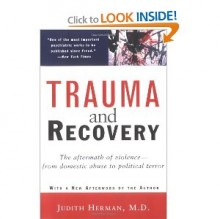Describes the nature of addiction recovery and the factors that facilitate the process, using the Stories and quotes from our Storytellers and research conducted by members of the Wired In team. (12,698 words)
On the Nature of Healing: Judy Atkinson
 As some of you know, I was inspired to work in the healing trauma field in large part by Judy Atkinson’s wonderful book Trauma Trails: Recreating Song Lines – The Transgenerational Effects of Trauma in Indigenous Australia. Here is a short bio of Judy, taken from the We Al-li website:
As some of you know, I was inspired to work in the healing trauma field in large part by Judy Atkinson’s wonderful book Trauma Trails: Recreating Song Lines – The Transgenerational Effects of Trauma in Indigenous Australia. Here is a short bio of Judy, taken from the We Al-li website:
‘Emeritus Professor Judy Atkinson is a Jiman (central west Queensland) and Bundjalung (northern New South Wales) woman, with Anglo-Celtic and German heritage.
Her academic contributions to the understanding of trauma related issues stemming from the violence of colonisation and the healing/recovery of Indigenous peoples from such trauma has won her the Carrick Neville Bonner Award in 2006 for her curriculum development and innovative teaching practice. In 2011 she was awarded the Fritz Redlick Memorial Award for Human Rights and Mental Health from the Harvard University program for refugee trauma.
Judith Herman: Trauma and Recovery
 1. Principles of recovery (healing)
1. Principles of recovery (healing)
‘The core experiences of psychological trauma are disempowerment and disconnection from others. Recovery, therefore, is based upon the empowerment of the survivor and the creation of new connections.
Recovery can take place only within the context of relationships; it cannot occur in isolation. In her renewed connection with other people, the survivor re-creates the psychological facilities that were damaged or deformed by the traumatic experience. These faculties include the basic operations of trust, autonomy, initiative, competence, identity, and intimacy.
Just as these capabilities are formed in relationships with other people, they must be reformed in such relationships.
Factors Facilitating Recovery: Mutual Support
 I continue with my series of blog posts relating to the factors that facilitate recovery from addiction, which I have detailed in the second last chapter of my eBook Our Recovery Stories: Journeys from Drug and Alcohol Addiction. These factors are also relevant to recovery from mental health problems.
I continue with my series of blog posts relating to the factors that facilitate recovery from addiction, which I have detailed in the second last chapter of my eBook Our Recovery Stories: Journeys from Drug and Alcohol Addiction. These factors are also relevant to recovery from mental health problems.
“Acceptance is just one aspect of the fifth key factor underlying recovery, being supported by others. People in recovery stress the importance of having someone believe in them, particularly when they don’t believe in themselves. They also stress the importance of having a person in recovery as a mentor or role model as they travel their journey.
’emotional-CPR Overview’ by National Empowerment Center
Here’s a great new video from the National Empowerment Centre (NEC) in the US. I can strongly recommend both the video and the approach. Here is what the NEC has to say.
‘What is eCPR?
Emotional CPR (eCPR) is an educational program designed to teach people to assist others through an emotional crisis by three simple steps:
- C = Connecting
- P = emPowering, and
- R = Revitalizing.
The Connecting process of eCPR involves deepening listening skills, practicing presence, and creating a sense of safety for the person experiencing a crisis.
The culture of addiction: Part 2
 The second part of this series focuses on the impact of legal status on drug culture. Click here for part one.
The second part of this series focuses on the impact of legal status on drug culture. Click here for part one.
Society makes judgements about different types of psychoactive drug. As Bill White points out in his book Pathways from the Culture of Addiction to the Culture of Recovery, the social status and value attached to a particular drug by society influence several things:
- The risks associated with use of the drug
- The organisation of ‘tribes’ within the culture of addiction
- The characteristics of each tribe and the impairments that members experience from both the drug and the culture itself.
Clearly, there are likely to be differences in a variety of factors for drugs that are legal (e.g. alcohol) and those that are prohibited by law (e.g. heroin).


